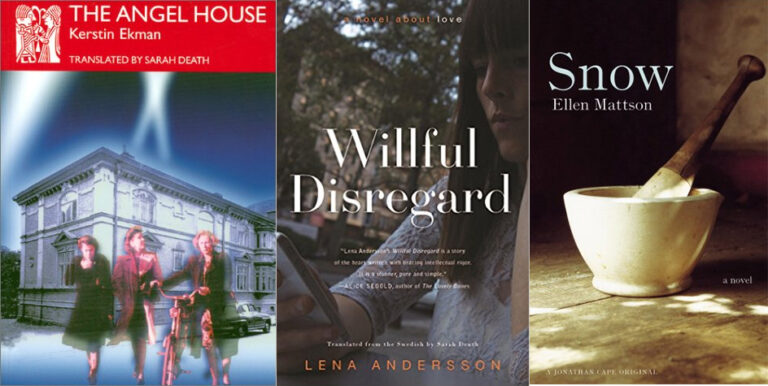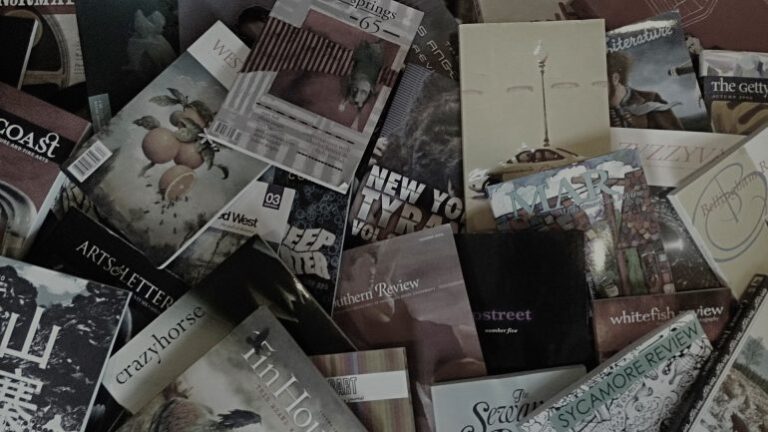The Literature of Love: the Good, the Bad, and the Weird

A Catalan roommate of mine once told me about La Diada de Sant Jordi (or the day of St. George), which is the closest that her part of Spain comes to our Valentine’s Day. Boys give roses to the girls, and girls give books to the boys.
Well, St. George apparently made all sorts of assumptions about what men and women want. To rectify this balance, our mixed-gender office will provide all of you with some love-themed literature for this Valentine’s Day.
(If you have an interest in courting our magazine, please feel free to send roses.)
GOOD ROMANCE
Persuasion, by Jane Austen: It occurred to me recently that most Jane Austen novels consist of putting a spirited woman through various tribulations so as to make her Ready for the Dweeb—that is, some reliable, passionless cousin that she can hold hands with on country walks. But Persuasion, which is my favorite of her books, considers that perhaps one’s first, reckless choice—for a sailor, in this case, rather than the usual bowl of broth the other women end up with—might after all be the right one. For some additional passion, see this piece of Jane Austen fan fiction (called “Ooh Mr. Darcy”) by the wonderful Kate Beaton.
The Poetry of John Donne: Most Good Romances are pretty bloodless. We could even add a new category to this post called Dull Romance (Exhibit A: Charles Dickens). But Donne is, frankly, dirty. Refreshingly dirty. Much like Pootie Tang, he wants to use his whole body to show his love for you. The intrigued should read or re-read “To His Mistress Going to Bed,” which is the closest a set of beautiful words can come to being NSFW. Off with that girdle!
The Princess Bride, by William Goldman: And film. Even though Buttercup is at times completely useless (particularly as far as ROUSes are concerned), it’s inconceivable! that anyone couldn’t love Westley and his fate-loving “as you wish.” —Abby Travis, Editorial Assistant
The Confessions of Zeno, by Italo Svevo: In Eternal Sunshine of the Spotless Mind, the name “Mary Svevo” is clearly Charlie Kaufman’s homage to this great Triestine writer and close friend of James Joyce. (I personally find Svevo more enjoyable to read.) The narrator continuously pursues one sister—the pretty one, of course—while becoming unconsciously entangled, by degrees, with another one. A beautiful depiction of how, sometimes, you end up with the right person despite your best attempts to ruin things.
The Velveteen Rabbit by Margery Williams: Surely you’ve heard of The Velveteen Rabbit, but when’s the last time you actually read this gem of a children’s book? “Generally, by the time you are Real, most of your hair has been loved off, and your eyes drop out and you get loose in the joints and very shabby. But these things don’t matter at all, because once you are Real you can’t be ugly, except to people who don’t understand.” I like to think that these same lessons apply to adult love as well. After 50 years of marriage, whose hair hasn’t been loved off? (Metaphorically, we hope.) —Andrea Martucci, Managing Editor
BAD ROMANCE
A Lady of the West by Linda Howard: I’m ashamed to admit that this is my favorite romance novel. (Yes, it’s a romance novel.) Why isn’t my favorite romance novel one where the couple comes to love each other through mutual respect and understanding? Because that’s just not very exciting, is it? There is one particular un-PC scene in this book that makes my blood boil every time I read it, but I just can’t stop. Brief synopsis: Uptight Victoria Waverly is basically sold by her destitute parents into a marriage with a wealthy (but despicable) cattle rancher in 1860’s New Mexico. Jake Roper is a gunslinger who works on the ranch, but little do we know he’s also the son of the previous owners who were brutally murdered so that Victoria’s husband could take over the ranch 20 years ago. He’s secretly plotting revenge, which of course Victoria gets caught up in as the two fall in love despite the fact that they can’t be together for three seconds without fighting or sniping at each other. Just suspend your disbelief and you won’t be able to put it down. —Andrea
“The Beggar Maid,” by Alice Munro: My favorite Alice Munro story. It captures the strange moth-to-the-flame feeling of being drawn into a relationship that you know is going to be a disaster, and yet being unable to avoid it.
Europa, by Tim Parks: Two-hundred pages of hugely entertaining vituperation against a faithless woman and the world and one’s own worthlessness. Also, the music on the radio sucks and bus seats are uncomfortable. Basically a brilliant, cranky stand-up routine in book form.
“Avey,” by Jean Toomer: A beautiful, melancholy story about a hopeless love for a distant woman, from Toomer’s classic Cane. The best fictional account I have ever read of trying to have a relationship with someone who is entirely unavailable.
De Profundis, by Oscar Wilde: The nasty love letter elevated to high art. Wilde wrote this 100-page missive from prison to the spoiled, careless lover who essentially put him there (“Bosie,” a.k.a Lord Alfred Douglas, pictured at left). Make sure to read the unexpurgated copy, which alternates between petty complaints (“you never return my calls”) to beautiful reflections on art and life. Maybe the best thing Wilde ever wrote.
WEIRD ROMANCE
Jane Eyre, by Charlotte Brontë: A book where the heroine faces many a common tribulation, such as coming across her future husband’s crazy first wife in the attic. (Here, again, the wonderful cartoonist Kate Beaton.) Also, in a scene so bizarre that none of the film adaptations I’ve seen have even attempted to duplicate it, Jane’s big burly man disguises himself as an old gypsy fortune teller to try to suss out her feelings for him.
Far From the Madding Crowd, by Thomas Hardy: Sometimes, two people are just meant to be together, and all it takes for them to see it is a murder, the death of a woman and her newborn child, and another potential lover getting imprisoned for life. This, in the world of Thomas Hardy, is a happy ending.
In Search of Lost Time, by Marcel Proust: Yes, I have actually read the whole thing. It was my grand project in college. This is a good book to read when you are young, and then again when you are old and cynical. The whole book is about love, but bizarrely there is not a single couple that truly seems to be in love—they just weave jealous fantasies and delusions around each other in some of the most intricate prose ever written.
The Letters of John Ruskin and Effie Gray: So, so weird. Ruskin married his wife and then refused to sleep with her for years. Apparently, the first night they were together, something repulsed him, no one is sure what: some people theorize that, as an art aficionado, he had a very odd idea of what women were supposed to look like unclothed (the curious can find the gory details here). Effie eventually had the marriage annulled, and went on to have many children with the painter Millais. A grimly fascinating story, and a window into both Victorian neuroses and the very particular neuroses of John Ruskin.


